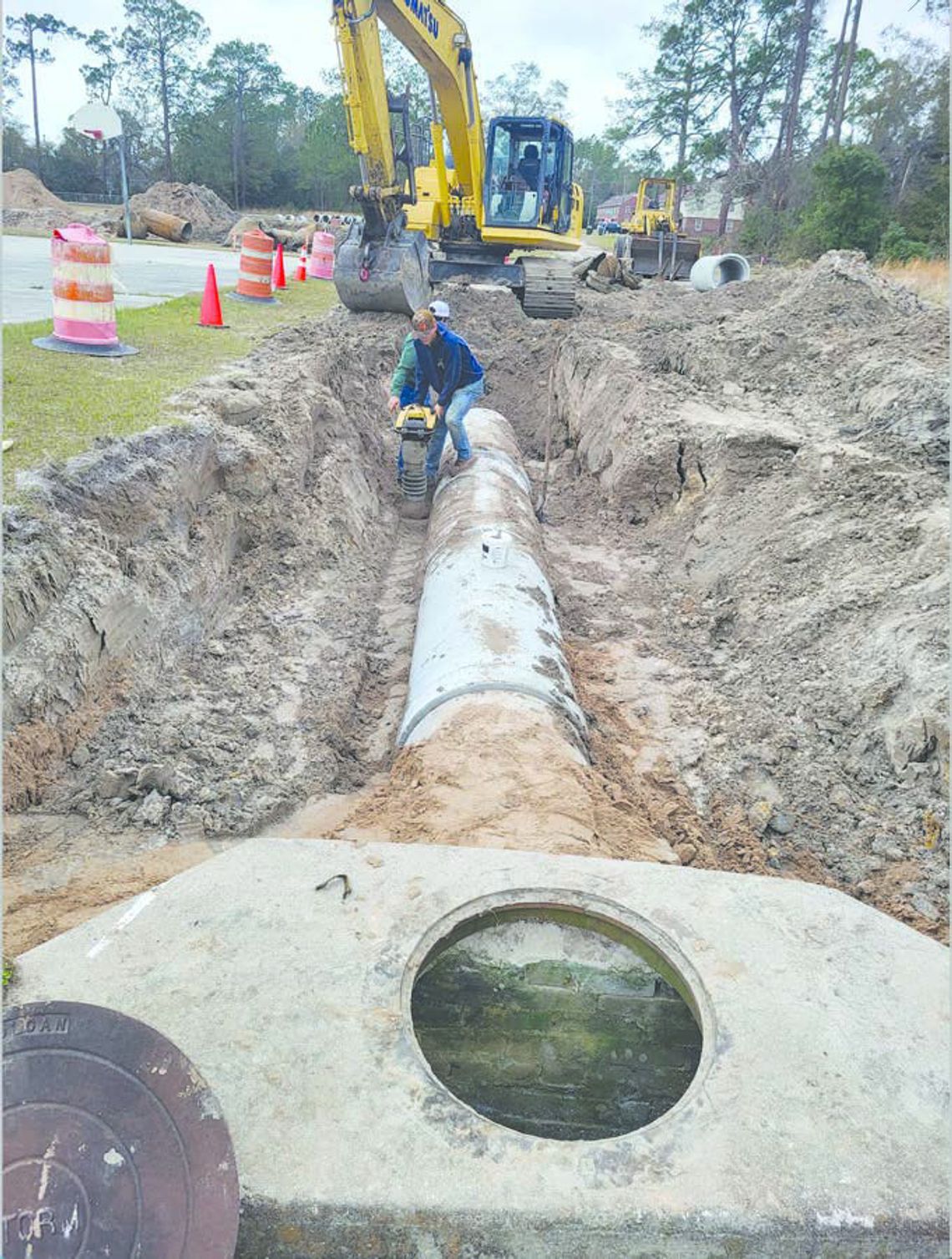Water and sewer rates for City of Waycross residents and businesses will increase three percent beginning October 1.
The hike was approved by the Waycross City Commission Tuesday, April 15 at its bimonthly meeting in City Hall. In addition to the higher watersewer rates, commissioners also OK’d a sewer rate adjustment of seven percent for commercial customers as part of the resolution.
City Manager Ulysses “Duke” Rayford has sought the increase since early last year in an effort to help offset the cost of simply maintaining the city’s aging infrastructure, some of which dates to the 1960s.
It was the first water-sewer service rate increase approved since 2010, Rayford said.
In Rayford’s presentations calling for the hike, the average monthly water bill for a residential customer was $23.13 with the sewer bill at $38.25. Those bills would be $23.82 and $39.40, respectively, for a total monthly increase of $1.84 after October 1.
Commercial bills are determined by the size of meter used. They range from two to eight inches with the average bill at $36.80 on the low end and $1,714.53 on the high. The monthly increase there would be $1.11 up to $51.44, respectively.
The accompanying sewer service fees currently are $39.75 for the smallest meter and $2,216.04 for the largest. Those figures raise to $43.72 ($3.97 hike) and $2,437.6 ($221.61), respectively with the adjustment.
Rayford said the increase was the first for water-sewer rates since 2010. It passed on a 3-1 vote with Commissioners Shawn Roberts, Sheinita
SPECIAL PHOTO Bennett and Alvin Nelson for and Katrena Felder against. The fifth seat on the commission, vacant since the January 29 death of Diane Hopkins, won’t be filled until the Municipal Election in November.
Rayford said the additional revenue generated, anticipated to be around $300,000 in its first year, will help the city handle system issues that arise almost weekly. It also will provide the capital to seek other revenue through grants and matching funds.
“We’ll never catch up with amount of revenue we’re bringing in now,” Rayford said before the measure was approved. “It will only get worse.”
Rayford said the city is spending about $7 million a year just to maintain its system, not improve it. Studies have pegged that cost at $20 million or more depending on the rate of inflation at the time of the work, he said.
It’s Rayford’s hope the commission will raise the rates at the levels approved last week annually for three years. If that were to happen, today’s average residential water-sewer bill would be $5.69 higher than today’s.
The city also is considering a new meter program that would improve accuracy in monitoring water usage, thus resulting in additional revenue.










